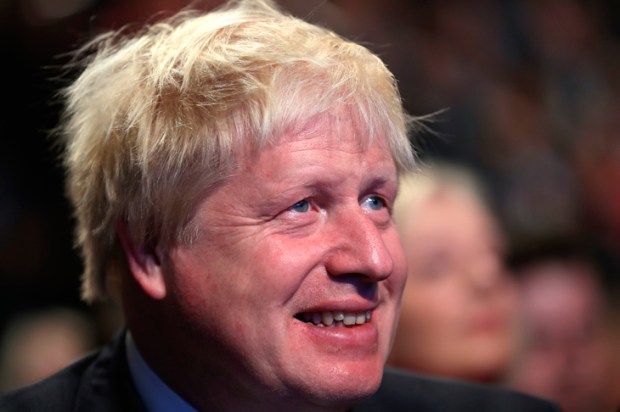Boris Brexit?
The British vote on exit from the EU, commonly known as Brexit, may become Boris Johnson’s entry to the prime ministership of an enlivened UK. A referendum on whether the UK should remain in the European Union is to be held on 23 June, and Boris is firmly in the ‘Exit’ camp.
Brits have never been comfortable in Europe
In 1974, the European Commission surveyed Brits asking ‘if you are told tomorrow that the European Union had been scrapped would you be very sorry about it,… or very relieved?’ 30 per cent of Brits said they would be very sorry, forty per cent said they would be very relieved. In 1981, to the same questions, 20 per cent of Brits said they would be very sorry, 40 per cent said they would be very relieved. Unfortunately, the Commission has not asked that question since 1981. Perhaps it thought that it was safe from exits. If so, it was wrong.
The 23 February YouGov poll for the Times reported that 38 per cent of Brits wanted to leave the European Union, 37 per cent wanted to remain, and 25 per cent were undecided or not planning to vote.
The voters will weigh the benefits of collective action against the freedom to control the borders, the economy and the laws of the UK.
To significant, long-standing numbers of Brits who want out of Europe, has been added those spooked by the refugee invasion of Europe. Given that the UK has not signed the Schengen agreement, which removed border controls between EU countries, Exit (or Stay) is no solution. But, Exit would provide a clear signal to those in Schengen that the UK does not want to play the great humanitarian games that may well destroy liberal Europe.
As the Dowager Countess of Grantham said to cousin Isobel Crawley in a recent episode of Downton Abbey, ‘Does it ever get cold on the moral high ground?’
Brexit would have vast implications for all supranational organisations. Rent-seeking poorer states, legions of international public servants, and their cheer squad international NGOs who are weary of mere nations, are going to fight hard to keep the money rolling in.
Along with major corporations, whose interests are in stability, these groups are the most vocal supporters of ‘Staying’. The biggest danger of staying is groupthink. For example, at the recent G20 finance ministers meeting, advice from the OECD was distinctly Keynesian. A recent article in the Guardian was instructive: ‘At last, the OECD has converted to the teachings of John Maynard Keynes. The austerian non-believers, for so long the dominant force in the Paris-based thinktank, are banished. Common sense has prevailed.’
Enough to make a grown man cry.
Before the 2008 global financial crisis, the proportion of EU government spending to GDP was 45 per cent. As part of the response to the GFC, government spending to GDP rose to 50 per cent. In the seven years since the GFC, it has not fallen below 49 per cent.Although deficits have reduced, EU government debt to GDP has risen from 65 per cent before the GFC, to 95 per cent.Europe, as a collective, has always been Keynesian. The UK has, from time to time, broken from the pack. Of course, those episodes have been achieved while the UK was part of the EU, but the price of playing the EU game is to fall into line on more occasions than common sense would dictate. The one clear lesson from joining ‘big clubs’ is the susceptibility of group thinking. The mere fact of joining tilts decisions towards consensus. It does not hurt to have influential outliers, of which, the US is the greatest example.
As for legal sovereignty
The Court of Justice of the European Union erodes UK sovereignty. The problem lies in the Charter of Fundamental Rights, proclaimed in 2000. It described 50 new ‘rights, freedoms and principles’ in addition to the 20 rights in the European Convention on Human Rights. It is argued that the Charter does not extend the ability of the Court of Justice of the European Union, or any UK court, to find that the laws of the UK are inconsistent with the fundamental rights, freedoms and principles that it reaffirms.
However, a House of Commons European Scrutiny Committee Report of 2007-08, reporting to David Miliband, Secretary of State for Foreign and Commonwealth Affairs, concluded: ‘We remain concerned that the provisions on the role of national parliaments are still cast in terms in which a legal obligation can be inferred. We express doubts on the effectiveness of the Protocol on the Charter of Fundamental Rights and do not consider that it guarantees that the Charter can have no effect on the law of the UK.’ The Labour government went ahead regardless.
In the opinion of Aidan O’Neill QC: ‘As is not uncommon in matters of the EU, yet again a line in the sand has apparently been drawn by the United Kingdom, only for that line to be quickly washed away in the always “incoming tide” that is EU law as it inevitably further diminishes the already much-attenuated sovereignty of the Member States.’
Boris’s challenge
The analysis, in 2015, by Open Europe sets out the economic options facing Britain post exit. The report concludes that benefits could be mildly positive or mildly negative, depending on decisions in the wake of the departure.
Boris Johnson’s challenge is to convince Brits that a vote for exit is just the start. The UK should not be afraid to leave the club. Indeed, the club is more afraid of exit than Brits.












